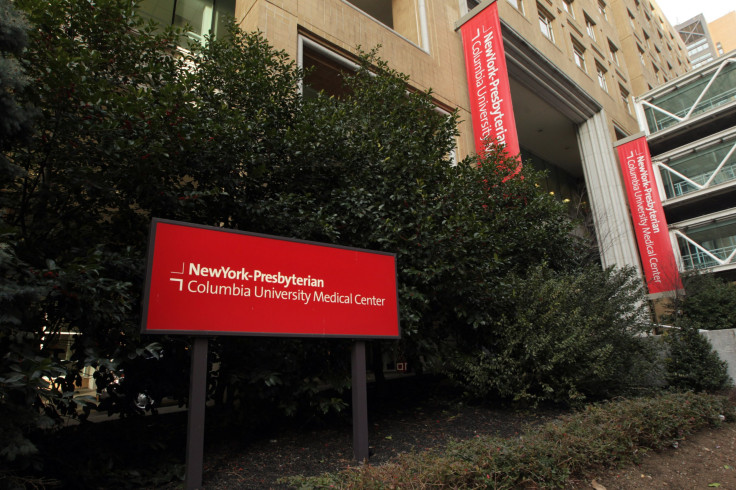New York-Presbyterian Hospital To Close Family Medicine Center In 2016, Amid National Push For More Primary Care Under Obamacare

UPDATE: 2:15 p.m. EDT --
After reports said Tuesday that New York-Presbyterian Hospital would shutter its family medicine program in 2016, a spokeswoman for the hospital said it would keep open at least one clinic within the program, although details about what changes that decision would spell for the next academic year, as well as the fate of other clinics at the Center for Family Medicine, remained unclear.
In a statement emailed Tuesday to International Business Times, Karen Sodomick, a vice president of public affairs at New York-Presbyterian Hospital, said, "After listening to feedback from our medical staff, we have decided that the family medicine residency program at The Herman “Denny” Farrell Jr. Community Health Center will stay open and the faculty will remain. We will be accepting an additional class of residents in its current form as we explore the development – in close collaboration with faculty, residents and medical students -- of other potential models of primary care training and delivery in the future."
Sodomick did not immediately respond to questions requesting more details and clarification regarding the initial decision to close the Center for Family Care.
Original story:
One of the top hospitals in the United States, the New York Presbyterian Hospital, has planned to close its family medicine center at the end of June 2016, IBT has learned. The decision emerges amid an ongoing nationwide push under the Affordable Care Act to expand and strengthen primary care services -- such as family medicine -- in order to both rein in medical spending and make patients healthier.
Medical students, faculty and administrators at Columbia University Medical Center, which is affiliated with the hospital, described the decision as a surprise that lacked any kind of transparency. Closing the Center for Family Medicine would not only cut vital services for patients in the impoverished New York City community of Washington Heights, but it would also abruptly force residents there to reapply for new residency programs and faculty to teach or practice elsewhere.
“We are very upset about this,” Dr. Lisa Mellman, the dean of student affairs at Columbia University College of Physicians and Surgeons, wrote Monday night in an email to students and others at the medical school, a copy of which was reviewed by IBT. “This was a hospital decision that I only learned about at the end of last week, and we are trying to get information about the rationale and other details,” Mellman wrote.
“We are all in shock,” a faculty member at Columbia University Medical Center, who spoke on condition of anonymity out of fear of retribution from employers, said. “We really weren’t able to get any information yesterday about what’s behind this.”
The faculty member said that the decision appeared to have come from New York-Presbyterian Hospital and that the university’s role in it remained unclear.
But a Columbia University medical student, who also spoke on condition of anonymity because of fears of retribution or potential damage to the student’s career, said that some faculty described the change as coming from Dr. Lee Goldman, the dean of the faculties of health sciences and medicine and the chief executive of Columbia University Medical Center.
The New York-Presbyterian Hospital press office did not immediately respond to several requests for comment.
The Center for Family and Community Medicine includes four community health centers or clinics, according to its website: the Farrell Community Health Center, the Allen Hospital Medical Service, the Al Hirschfeld Free Health Clinics and the CHHMP Homeless Clinic. In the surrounding community of Washington Heights, 27.6 percent of the population lived below the federal poverty line in 2013, compared to 20.9 percent citywide.
“Today this neighborhood represents a microcosm of our global neighborhood, which in turn leads to a very diverse patient population, especially for those interested in pursuing a career in family medicine in an urban environment,” Goldman’s note on the medical center’s Dean’s Page read, as of Tuesday.
According to the New York-Presbyterian's 2010 annual report, the most recent available online, the hospital provided $112.2 million in charity care in 2009. The hospital's facilities had more than 2 million visits from patients in 2013, across six different campuses in New York, and in 2015, U.S. News and World Report ranked it the No. 1 hospital in New York and No. 7 in the nation.
The impact of closing the family medicine center could be detrimental for medical students and residents as well as patients in the community, sources said. It was not immediately clear which clinics would close or what parts would be shuttered, as some are jointly run with nonprofits or other organizations. The Farrell Family Health Center, which is run by the hospital, however, would appear poised to be shut down.
On a national front, a fresh push to expand primary care has been under way for several years. The Affordable Care Act devoted nearly $230 million to training 1,700 new doctors, nurses and physicians assistants in primary care, for instance, and it has set aside $5.4 billion in Medicaid reimbursements for primary care. The law changed other infrastructure aimed at improving payment for primary care doctors and encouraging medical students to take up primary medicine.
© Copyright IBTimes 2025. All rights reserved.






















